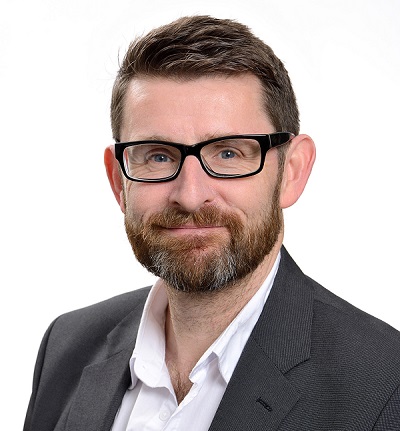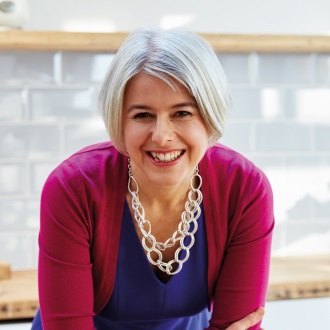Links to external sources may no longer work as intended. The content may not represent the latest thinking in this area or the Society’s current position on the topic.
Networking event for Industry Fellows and Entrepreneurs in Residence

This Industry Fellows College networking event takes place at the Royal Society on 23 November from 9am-5pm.
This conference will address cross-sector collaborations by bringing together past and current holders of a Royal Society Industry Fellowship and their collaborators.
Participants will have the opportunity to discuss issues and successes, and hear about the wider work of the Society. Training courses will also be offered to participants.
This year saw the return of the Royal Society Industry summer placement programme, with students completing a placement with an Industry Fellow. We will be joined at this event by our summer students, who will present their work. New to the College will also be the Entrepreneurs in Residence who were announced in March and will be spending 20% of their time in collaborating universities helping to commercialise research and adapt courses to reflect skills needed within industry.
As well as past and current Industry Fellows, there will be a limited number of places at this event for others interested in the relationship between industry and academia. If you would like to attend, please email industry@royalsociety.org with a short explanation as to why you are interested in attending.
Organisers
Schedule

Professor Joe Sweeney, University of Salford

Professor Joe Sweeney, University of SalfordProfessor Joe Sweeney was awarded a BSc in Chemistry and elected an Associate of the Royal College of Science at Imperial College, and carried out a PhD studying synthetic uses of aziridines and allylstannanes at the University of Oxford. In 1990, Joe was appointed as Lecturer in Chemistry at the University of Bristol where he developed research projects focused on new methods for preparation and use of polyhydroxylated ring structures, aziridines and metalled furanones, and the total synthesis of several naturally-occurring lactones. He then moved to a Readership in Organic Chemistry at the University of Reading. In 2007, Joe was awarded the inaugural Faculty Output Prize at the University of Reading for his group's publication on asymmetric rearrangements, and became Professor of Synthesis and Chemical Biology. In 2008, Joe was awarded a Royal Society Industry Fellowship with AstraZeneca, which was later extended. Joe is now Dean for the School of Science, Engineering and Environment at the University of Salford. |

Chris Warkup, CEO Knowledge Transfer Network

Chris Warkup, CEO Knowledge Transfer NetworkChris Warkup is the CEO of Knowledge Transfer Network Ltd (KTN), that provides innovation networking for Innovate UK and other funders. KTN exists to drive productivity and growth by connecting R&D active businesses, entrepreneurs, academics and funders to realise the potential of innovative new technologies, ideas and creativity. Across all technologies and industries and across the whole of the UK, KTN matches needs and capabilities to find solutions to problems and markets for new ideas. Chris is an animal scientist by background with a keen interest in genetics and genomics. He has over 25 years’ experience in research and innovation, working in both the public sector and industry. Prior to joining KTN in 2014 he was the CEO of the BioScience KTN, one of 14 merged at that time. Chris is the former Chairman of the Genomia Seed Fund, and a Trustee of the Roslin Foundation.
|

Professor Katherine Smart, The Surrey Copper Distillery

Professor Katherine Smart, The Surrey Copper DistilleryKatherine Smart is the Co-Founder and Distiller of The Surrey Copper Distillery Limited. Until October 2017 Katherine was the Global Chief Brewer of ABInBev (the world’s largest Brewing Company) and SABMiller PLC (acquired in 2016 by ABInBev). As Vice President in both companies she was responsible for research, innovation, brewing strategy, botanical strategy and technical stewardship of global brands. Before her corporate career, Katherine held fellowships and academic positions at the University of Cambridge, Oxford Brookes University and the University of Nottingham where she was the SABMiller Professor of Brewing Science from 2005 to 2012. She was awarded £25m in research monies, published extensively and founded the National Brewing Library at Oxford Brookes University and the Bioenergy and Brewing Science Centre at the University of Nottingham. During her academic career Katherine held a Royal Society Industrial Fellowship (2001–2003). She successfully completed her DSc by publication in December 2016 and is an author of technical books. |
| 10:40 - 10:50 |
Career Spotlight, Then and Now

Professor Rob Lee

Professor Rob LeeUntil June this year Rob was Shell’s Technical Authority on Microbial & Biochemical Processes and had led Shell’s Biodomain team on two continents, delivering the R&D component for the commercialization of Shell’s Biofuels projects. Until 2005 he was the Fuels and then the Lubricants Technology Innovation Manager working with the Shell's Product businesses to develop new technology-based products. He has a wide range of published papers and filed patents and has received a number of awards including the Salters-Jerwoord Prize from the Salters Institute and the Russell S. Springer Award for originality from the Society of Automotive Engineers. Rob’s collaboration with Exeter University and Prof. John Love is longstanding with almost a decade and a half of joint research on biofuels issues. Rob is an honorary Professor at Exeter. |
|---|---|
| 10:50 - 11:00 |
Sustainable Futures: Blending Science with Genius Thinking

Lucinda Bruce-Gardyne, founder of Genius Foods

Lucinda Bruce-Gardyne, founder of Genius FoodsLucinda Bruce-Gardyne is the creator of the first fresh gluten free bread on the market and Founder of Genius Foods Ltd, the UK’s leading brand in fresh gluten and dairy free bakery products. She is an experienced Executive and Non Executive Board Director, Food Scientist and Ingredient Functionality Expert, Innovator of great tasting gluten and dairy free food, Author, Chef and Mother. Lucinda is dedicated to helping people with dietary restrictions, enjoy a mainstream diet and lifestyle. She is committed to supporting scaling businesses, budding entrepreneurs, and finding sustainable, ground-breaking food solutions to improve public health and well-being. Lucinda is also passionate about the important role science plays in business growth and efficiency. Lucinda is also Royal Society Entrepreneur in Residence at Edinburgh University, Board Director of The Scale Up Institute, and on the Scotland Food and Drink Board. |
| 11:00 - 11:15 |
The Royal Society Industrial Fellowship: a career changing opportunity

Dr David Whan

Dr David WhanDavid is a graduate of Queen’s University Belfast with a BSc in Chemistry, a PhD and a DSc. After a Fulbright Fellowship at Rice University, he was a lecturer at the University of Edinburgh. A Royal Society Industrial Fellowship led to him becoming a Research Associate with ICI. He returned to academic life at the University of Hull and then Durham University in senior positions which involved close liaison with industry. As a self-employed consultant, David had contracts with HEFCE, EPSRC and several universities in the UK and abroad. He was a Member of Council of the RSC, a Trustee of the New Engineering Foundation and a Visiting Professor at QUB. |
|
Networking Sandpit: Industry Fellows College
How to make 500 contacts in an hour A combination of short talks and speed networking, the sandpit will be used to make many new contacts in a short period of time. Presenters will be given 60 seconds, a microphone and no slides to cover three things: 1. Who they are 2. Their research area 3. Topics they are looking to collaborate on or need help with. After five talks, we will hold a speed networking session for 25 minutes. Participants will be given 5 minutes with each partner before re-coupling. Afterwards, the cycle repeats. |
|
|
Workshop: Entrepreneurs in Residence
The Royal Society’s Science Policy team is working to better understand the benefits that research and innovation bring to the UK, the distribution of those benefits across the country and its population, and how best to measure these. As part of this work we are also seeking to understand the conditions needed to translate research and drive innovation and how these conditions interact and change in different environments. As practitioners with experience of working across the country in both industry and academia, we are keen to explore your views on these broad issues. To do this we shall hold a short introductory discussion as part of the Entrepreneurs in Residence (EiR) meetup on Thursday 20 September 2018. In particular, we would like to gain your perspective on the following: 1. Methods across sectors for capturing the range of benefits of research and innovation, whether in terms of economic benefits, health and wellbeing, sustainability and social and cultural enrichment 2. Approaches and challenges in capturing the distribution of benefits produced by research and innovation at a regional level in the UK 3. Processes for measuring the relative effectiveness of different levers used to facilitate research and translation |
|
Student training: The Verbal Business Card
While you are comfortable when talking to fellow academics you may well be anxious when talking to people outside of your academic community. To help make these conversations a success, we have a few hints and tips for you. 1. You are not a salesperson – and we do not want you to imagine you are. 2. You are not engaged in “selling” anything – the purpose of the conversation is for you to find out things about the people in front of you, and for them to find out about you. To help you open a conversation we will introduce you to the Verbal Business Card. 
Professor Simon Brown, Visiting Professor UoWTSD, Enterprise and Entrepreneurship Education consultant, Head of Enterprise Development NCEE

Professor Simon Brown, Visiting Professor UoWTSD, Enterprise and Entrepreneurship Education consultant, Head of Enterprise Development NCEEFor 15 years Simon worked to establish Sheffield Hallam University as the leading institution in the country, with a comparable international reputation, in the vitally important area of graduate employability. In 2005 Simon established their prestigious Centre for Excellence in Teaching and Learning (CETL) for Embedding, Integrating and Enhancing Employability. In the field of graduate employability Simon has been involved nationally and internationally with many academic developments specifically around the embedding of enterprise and entrepreneurship into the curriculum. In 2005 Simon was elected to the board of UKSEC and has been central to the transformation to Enterprise Educators UK - the national network for enterprise educators. Simon was the Chair of this organisation in 2009/10. In this role Simon has represented the UKs Enterprise Educators on National committees and internationally and advised on enterprise and entrepreneurship education. In February 2009 Simon joined Southampton Solent University as the Director of the reformed Southampton Business School where he applied his energy to enhancing graduate employability and developing enterprise and entrepreneurship. Recently Simon has established himself as an independent consultant and has been appointed as a Visiting Professor by the University of Wales Trinity St David. Simon has also been appointed as the Head of Enterprise Development by the NCEE where he works to transform the teaching of enterprise and entrepreneurship within Universities in the UK and internationally. Other projects are rapidly establishing Simon as a leader in the area of Enterprise and Entrepreneurship Education |
|
|
Opportunity Identification, Technology Commercialization & Business Models: Key Challenges and Hands-on Tools
In this workshop, participants will learn about the early stage of the technology commercialization process, where they are challenged to identify, evaluate and strategise market opportunities for their innovative technologies and to design business models that can reap the greatest benefits. The workshop is based on an interactive presentation of state-of-the-art knowledge about these critical topics and practical applications of the learned content. In this regard, participants are invited to bring their own technological innovations to the workshop and work on their commercialization, or support those of their fellow participants. 
Professor Marc Gruber, College of Management of Technology, EPFL

Professor Marc Gruber, College of Management of Technology, EPFLMarc Gruber is full professor at the College of Management of Technology at EPFL where he holds the Chair of Entrepreneurship and Technology Commercialization (ENTC), and Visiting Professor at the Imperial College Business School. Marc also acts as Associate Editor at the Academy of Management Journal (AMJ), the highest ranked empirical research journal in the management domain. Marc Gruber joined EPFL in the fall of 2005 coming from the Munich School of Management, University of Munich, where he was the vice-director of the Institute of Innovation Research, Technology Management and Entrepreneurship (INNOtec) and manager of the ODEON Centre for Entrepreneurship. He has held several visiting scholar posts at the Wharton School, University of Pennsylvania, where he conducts research on technology commercialization and entrepreneurial marketing. Prof. Gruber has published his research on entrepreneurship in several leading journals such as the Academy of Management Journal, Management Science, Organization Science, the Journal of Business Venturing, and Entrepreneurship Theory & Practice. In addition, he is the co-editor of a textbook on entrepreneurship and was a regular contributor to a weekly column on entrepreneurship in the "Frankfurter Allgemeine Zeitung". Marc Gruber's teaching has won high praise at several institutions of higher education and executive education programs. Marc Gruber graduated in management from the University of St. Gallen in 1995 and received a PhD in management from the same university in 2000. In spring 2005, he received a venia legendi from the Munich School of Management for his habilitation thesis on marketing in new ventures. |
|
|
Leading Teams and Influencing Change
Leading and managing teams is a complex proposition. In these sessions, Dr. Sankalp Chaturvedi will teach psychological principles of leading teams and influencing change effectively. The learning points will include: (1) how to lead teams 2) how to influence and sustain change in teams. The session will include learning-by-doing exercise, with debrief and conclusion for effective leadership development. 
Professor Sankalp Chaturvedi, Imperial College Business School

Professor Sankalp Chaturvedi, Imperial College Business SchoolSankalp Chaturvedi is an Associate Professor (Organisational Behavior & Leadership) at the Imperial College Business School. Currently, Sankalp is also leading the Gandhi Centre within the School. He holds a PhD from the NUS Business School, National University of Singapore. Prior to his PhD, he has a Masters in Human Resource Development and Management from the Indian Institute of Technology, Kharagpur (India) and a Bachelors in Engineering from RAU, Udaipur (India). The central focus of Sankalp’s research is in the areas of Leadership, Mindfulness, Organizational Citizenship Behavior (OCB) and Interpersonal Trust. Broadly, he is interested in the role of both psychological factors (motivational orientations ) and situational factors (e.g., leadership, trust). Specifically, in leadership domain, Sankalp is interested in examining the “nature vs. nurture” debates with regard to behaviors in organizations. He uses twin-sampling methodology to advance the understanding of the biological basis of behavior. He is also keen to study role of mindfulness in leadership spillover effects on follower stress, well being and performance. Sankalp has been an active participant and reviewer in several international conferences like the Academy of Management and the Society of Industrial and Organizational Psychology. His articles have been published/ accepted in the Journal of Applied Psychology, Organizational Behavior & Human Decision Processes, Strategic Management Journal, Leadership Quarterly, Journal of Management , Journal of Vocational Behavior, Entrepreneurship Theory & Practice, Mindfulness, Energy Policy and Academy of Management Best Paper Proceedings, among others. |
| 16:40 - 16:45 |

Dr Katy Gearing

Dr Katy Gearing |
|---|

Professor Joe Sweeney, University of Salford

Professor Joe Sweeney, University of SalfordProfessor Joe Sweeney was awarded a BSc in Chemistry and elected an Associate of the Royal College of Science at Imperial College, and carried out a PhD studying synthetic uses of aziridines and allylstannanes at the University of Oxford. In 1990, Joe was appointed as Lecturer in Chemistry at the University of Bristol where he developed research projects focused on new methods for preparation and use of polyhydroxylated ring structures, aziridines and metalled furanones, and the total synthesis of several naturally-occurring lactones. He then moved to a Readership in Organic Chemistry at the University of Reading. In 2007, Joe was awarded the inaugural Faculty Output Prize at the University of Reading for his group's publication on asymmetric rearrangements, and became Professor of Synthesis and Chemical Biology. In 2008, Joe was awarded a Royal Society Industry Fellowship with AstraZeneca, which was later extended. Joe is now Dean for the School of Science, Engineering and Environment at the University of Salford. |
